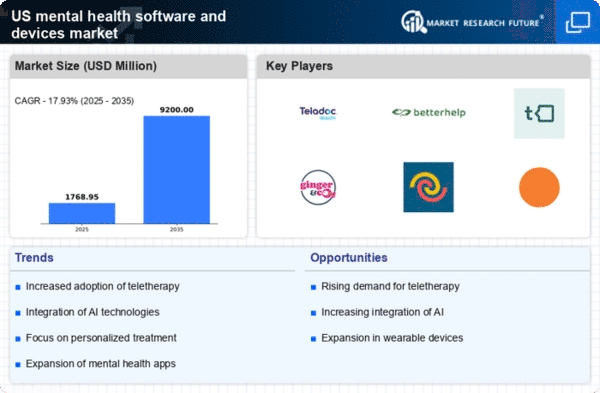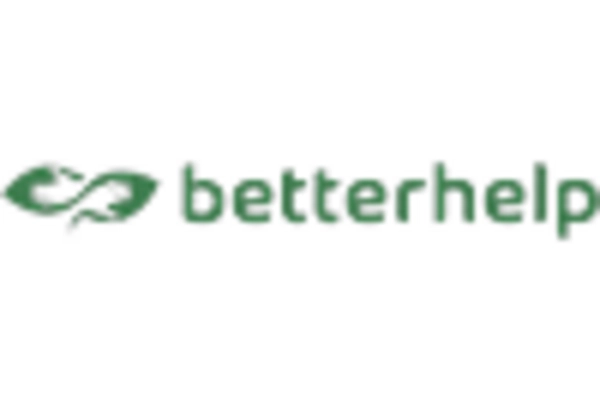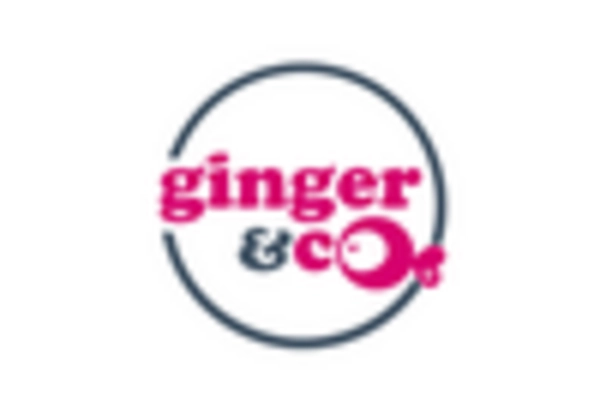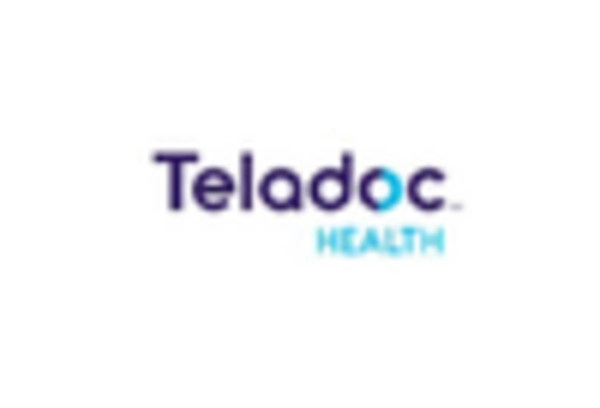Government Initiatives and Funding
Government initiatives and funding aimed at improving mental health care are likely to have a profound impact on the mental health-software-devices market. In recent years, various federal and state programs have been established to promote mental health awareness and increase access to care. For example, the US government has allocated substantial resources to support mental health services, which includes funding for digital health solutions. This financial backing is expected to stimulate innovation and encourage the development of new software and devices that address mental health challenges. As a result, the mental health-software-devices market may experience accelerated growth, as more organizations are incentivized to create effective solutions that align with government priorities.
Focus on Preventive Mental Health Care
The emphasis on preventive mental health care is emerging as a key driver for the mental health-software-devices market. There is a growing recognition that early intervention can mitigate the severity of mental health issues, leading to a shift towards proactive care solutions. This trend is encouraging the development of software and devices that promote mental wellness and resilience, rather than solely focusing on treatment. Market analysts indicate that the preventive mental health segment could account for a substantial share of the overall market, as consumers increasingly seek tools that help them maintain mental well-being. As a result, the mental health-software-devices market may see a diversification of offerings aimed at fostering preventive care and enhancing overall mental health outcomes.
Increased Awareness of Mental Health Issues
The growing awareness of mental health issues in society appears to be a significant driver for the mental health-software-devices market. As more individuals recognize the importance of mental well-being, the demand for innovative solutions has surged. Recent surveys indicate that approximately 1 in 5 adults in the US experience mental illness, which has led to a heightened focus on accessible mental health resources. This awareness is likely to propel the adoption of software and devices designed to support mental health, as individuals seek effective tools for managing their conditions. Furthermore, educational campaigns and advocacy efforts are contributing to a cultural shift that prioritizes mental health, thereby expanding the market's potential customer base and encouraging investment in new technologies and services.
Rising Demand for Remote Mental Health Services
The demand for remote mental health services is on the rise, significantly influencing the mental health-software-devices market. As individuals seek convenient and flexible options for mental health support, teletherapy and online counseling services have gained popularity. This trend is reflected in the increasing number of users engaging with mental health applications and platforms, which provide access to licensed professionals from the comfort of their homes. Market data suggests that the teletherapy segment is expected to grow by over 30% in the coming years, driven by consumer preferences for remote services. Consequently, the mental health-software-devices market is likely to expand as providers develop more sophisticated tools to facilitate remote therapy and enhance user experience.
Technological Advancements in Mental Health Solutions
Technological advancements are playing a crucial role in shaping the mental health-software-devices market. Innovations in mobile applications, artificial intelligence, and data analytics are enabling the development of more effective and user-friendly mental health solutions. For instance, the integration of AI algorithms in mental health applications allows for personalized treatment plans, which can enhance user engagement and outcomes. The market is projected to grow at a CAGR of around 20% over the next five years, driven by these technological improvements. As developers continue to leverage cutting-edge technology, the mental health-software-devices market is likely to witness an influx of new products that cater to diverse user needs, ultimately improving access to mental health care.
















